There is a philosophical debate that I constantly have in my head when I take on new clients. Usually, when they sign up for a coaching session they are prompted to fill out an intake form that looks like this,
So, as coaches we basically get a “download” of your situation and as I read through these “downloads” I constantly find myself wondering, does this person really want their ex back or are they just looking to fill the void the loneliness has created?
Here’s what I want to do.
I want to differentiate between the two to show you the difference between you wanting your ex back authentically versus just being lonely.
If You Are Just Lonely:
- Generalized Missing: You miss being in a relationship, not necessarily the person.
- Boredom Triggers: You think about your ex more when you’re bored or alone.
- Romanticizing the Past: You remember only the good parts of the relationship, ignoring the bad.
- Quick Fix: You want an immediate solution to your loneliness.
- Fear of Being Alone: The idea of being single is uncomfortable or scary.
- Indifference to Ex’s Flaws: You overlook the reasons why the relationship ended.
If You Authentically Want Your Ex Back:
- Emotional Stability: Your desire to reconnect comes from a place of emotional stability, not desperation.
- Willingness to Work: You are willing to put in the effort to make the relationship work.
- Mutual Interest: There are signs that your ex is also interested in reconnecting.
- Balanced Perspective: You see both the good and the bad in the relationship and are making a balanced decision.
Now, obviously for the rest of this discussion I am going to be breaking down everything in these two lists but before we get to that.
I’d like to have another philosophy debate.

What Are Your Chances of Getting Your Ex Boyfriend Back?
Take the quizAltruism Vs. Egoism
Honestly, the first thing that comes to my mind when I look at these two lists is the whole altruism vs. egoism debate. Altruism, in a nutshell, is all about selflessness, while egoism revolves around selfishness.
In my experience, trying to get an ex back from a place of loneliness usually doesn’t end well, whereas attempting to reconcile from a place of growth often does.
Looking at these two lists, I tend to categorize the loneliness aspect as a form of selfishness. Generally speaking, when you’re really lonely, your natural reaction is to think,
“Hey, if I can just get back the source of my loneliness or fix it, everything will be right in the world.” However, I’m not entirely convinced that’s the healthiest approach, and our research with our own success stories has borne that out.
It goes without saying that most of the people I work with tend to be incredibly lonely. They are convinced that their ex is the one and that they need to get their ex back at all costs.
Yet, one of the most fascinating developments over the past few years is that when I interview success stories—people who have successfully gotten their exes back—I start to notice a certain trend.
At some point during the no contact rule, they begin to experience a paradigm shift, thinking, “Hey, I’m not sure I want my ex back anymore.” I believe this is a crucial mindset to achieve.
From this standpoint, when they do attempt to try to get their ex back with the right mindset, they start to see results. To me, this is the whole altruism vs. egoism debate. We want to approach the mentality of getting an ex back from the most selfless standpoint possible, which is a bit of a paradox since most actions we take, especially in relationships, tend to be selfish.
We want the best deal for ourselves.
While I agree that’s the case, you do need to incorporate a dash of selflessness.
My argument is that you need to be okay with your ex moving on to someone else. What you need to prioritize is yourself. You need to get into the right mindset, where you actually don’t want your ex back anymore, and then try to get your ex back from there. It’s a weird, paradigm-altering mentality that you need to adopt.
Of course, when I explain this to average or new clients, they scoff at the idea, but they eventually come around when they try to get their ex back with this approach. Their initial approach is completely selfish.

What Are Your Chances of Getting Your Ex Boyfriend Back?
Take the quizThey’re lonely, missing their ex, and missing being in a relationship, but not necessarily missing their ex specifically. They’re bored, they start romanticizing the past, they’re looking for a quick fix, they’re terrified of being alone, they overlook their ex’s flaws, and they ignore red flags.
They might even get into a relationship with a narcissist. You get the picture. Usually, approaching this decision from a completely selfish, lonely state of mind does not yield the best results.
If You Are Lonely Here’s What To Look Out For (Egoism)
Just a quick recap of the loneliness list,
- Generalized Missing: You miss being in a relationship, not necessarily the person.
- Boredom Triggers: You think about your ex more when you’re bored or alone.
- Romanticizing the Past: You remember only the good parts of the relationship, ignoring the bad.
- Quick Fix: You want an immediate solution to your loneliness.
- Fear of Being Alone: The idea of being single is uncomfortable or scary.
- Indifference to Ex’s Flaws: You overlook the reasons why the relationship ended.
Let’s break it down.
Generalized Missing:
You miss being in a relationship, not necessarily the person.
- Lack of Specificity: When you think about what you miss, it’s more about the companionship, affection, and the idea of being in a relationship rather than specific qualities or moments with your ex.
- Idealizing Relationships: There might be a tendency to idealize relationships in general, thinking that being in a relationship will solve other unrelated issues in your life.
- Interchangeability: The feelings of missing could potentially be fulfilled by a new relationship, indicating that it’s not your ex specifically that you miss.
Boredom Triggers:
You think about your ex more when you’re bored or alone.
- Filling the Void: When you’re bored or alone, thoughts of your ex might come up as a way to fill the emotional void.
- Distraction from Discomfort: Thinking about your ex and the past relationship might serve as a distraction from the discomfort of being alone or bored.
- Pattern Recognition: If you notice a pattern where thoughts of your ex primarily occur during times of inactivity or solitude, it could be an indication that loneliness or boredom is a significant trigger.
Romanticizing The Past:
I’ve observed that both anxious and avoidant individuals tend to do this, though at different times.
For instance, most of our clients tend to have anxious attachment styles.
Typically, someone with an anxious attachment style starts to romanticize the past almost immediately. In fact, they might not have the best grasp on the reality of the situation right after a breakup. They immediately cling to positive memories, even if the entirety of the relationship wasn’t entirely positive.
Avoidant individuals also tend to romanticize the past, but they do it at a different point.
They usually don’t allow themselves to indulge in nostalgic reverie until they feel comfortable enough, perhaps when their ex has moved on to someone else or enough time has passed. Then, they start romanticizing the idea of a phantom ex, the one that got away.
I believe a lot of this is related to the peak-end rule, a fascinating psychological concept that helps us understand how human beings perceive memories.
Contrary to what most people might assume, we don’t perceive memories based on the entirety of an experience.
Instead, our memory tends to focus on two distinct points: the peak moments and the end moments. The peak moments can be either positive or negative, though they are most often positive. Then, of course, there are the end moments of the relationship.
What I find so intriguing about the relationship between the peak-end rule and avoidant individuals is that initially, the anxious individual only remembers the peak positive moments of the relationship, while the avoidant tends to remember the negative moments at the end.
However, over time, I would argue that the anxious person starts to remember fewer of those peak positive moments, while the avoidant individual starts to remember more of them. It creates a fascinating dichotomy between the two.
But here’s the crucial point: if you are trying to get your ex back simply because you are romanticizing the past, you are doing it from a place of loneliness. That is not the mentality I want you to have.
Fear Of Being Alone:
As I stated earlier, the vast majority of the clients that we take on have an anxious attachment style.

What Are Your Chances of Getting Your Ex Boyfriend Back?
Take the quizThis is important to discuss, especially in relation to the fear of being alone, because the core wound of an anxious attachment style is a fear of abandonment.
Essentially, anything that makes them feel as if they’re going to be abandoned, anything that an avoidant does that makes them feel they’re being abandoned, will often trigger very anxious behaviors. So, the fear of being alone is literally the core wound of an anxious person.
Quick Fix:
What often happens with anxious individuals who have been triggered is they immediately go into problem-solving mode. Their greatest fear has just come true—they’ve been abandoned.
So, in their mind, they think the only way to fix how they’re feeling, the only way to set the world right, is to look for the quick fix, to get back into a relationship with their ex immediately, without really doing any kind of personal growth or work.
They want an immediate solution to the loneliness they’re feeling. Trying to get your ex back from that state of mind is not going to yield the best results.
Indifference To Exes Flaws:
This one’s interesting because I think it has a lot to do with my research on narcissism. I’ve found that people who are incredibly lonely and want their exes back because they’re lonely will forgive a lot of the red flags that were exhibited and ignored throughout the relationship with their ex.
Often, we see this with anxious and codependent individuals who are completely reliant on narcissists—narcissists who will just use them for supply and then discard them when they’re no longer needed.
You can point out to an individual who’s incredibly anxious and lonely, “Hey, this is what’s happening to you, and it’s important that you stand up for yourself,” but you’ll find that they tend to be completely indifferent to those red flags. They’ll ignore them, think they know better, or, what I’ve found to be most likely, they’ll agree with you and say, “You’re right, I should stand up for myself,” but when push comes to shove, they don’t have the boundaries to actually do so.
So all of these things—the generalized missing, the boredom triggers, the romanticizing of the past, the fear of being alone, the quick fixes, the indifference to the ex’s flaws—these all stem from selfishness, from loneliness, and these are not usually great reasons to attempt to get your ex back. Usually, these are great reasons to try to get over your ex.
If You Authentically Want Your Ex Back Here’s What To Look For:
Once again, here’s a quick breakdown of the list we are going to be looking at in this section,
- Emotional Stability: Your desire to reconnect comes from a place of emotional stability, not desperation.
- Willingness to Work: You are willing to put in the effort to make the relationship work.
- Mutual Interest: There are signs that your ex is also interested in reconnecting.
- Balanced Perspective: You see both the good and the bad in the relationship and are making a balanced decision.
Let’s dive in a bit.
Emotional Stability:
The first thing we really want to focus on is emotional stability. In our community, you’ll often see people talk about EC, which stands for emotional control.
Just to give you an example, someone just posted today asking for tips on emotional control and dealing with jealousy.
I think it’s crucial that before you attempt to get your ex back, you achieve emotional stability in your life. It’s all about being self-sufficient. You feel secure and content within yourself. You don’t feel the need for a relationship to validate your worth or happiness.
What we’re really aiming for is to help individuals break free from their codependent tendencies.

What Are Your Chances of Getting Your Ex Boyfriend Back?
Take the quizSo, whereas before their world might have revolved around their ex,
Now their world revolves around themselves—or rather, their ex revolves around them.
They’re going to feel content with themselves. They won’t need a relationship to feel complete. But, I believe the most important and undervalued aspect of emotional stability is having healthy coping mechanisms for dealing with loneliness, stress, or other negative emotions.
You’re not relying on a relationship to solve these issues. You have the confidence to solve them on your own. That’s emotional stability, and that’s what I encourage all of my clients to achieve before they try to get their ex back.
Willingness To Work:
Okay, this might be a bit of a tough pill to swallow, and you might not like what I’m about to say. I would estimate that most clients who purchase coaching from our business want their exes back, but they often receive a rude awakening when they discover how long this typically takes.
Our average success story happens around the five to seven-month mark after they start working with us.
I walk you through that in this video,
So there needs to be a willingness—a necessity—to put in the work. And that’s not just the effort to try to get your ex back, but also the effort required to maintain your relationship once you’ve rekindled it, if you manage to do so.
I’ve found that the majority of individuals I’ve coached fall victim to something I call the “mañana principle.” “Mañana,” of course, is Spanish for “tomorrow.”
Essentially, you might have a coaching call with me where I outline the steps you need to start taking immediately. You’ll respond enthusiastically, “That sounds great, Chris.”
But then, when you’re on your own, you’ll think, “Yeah, that sounds great, but I’ll do it mañana—I’ll do it tomorrow.” Then tomorrow rolls around, and you tell yourself, “Oh, well, I’ll do it tomorrow.”
This cycle perpetuates, and before you know it, you’re purchasing another coaching session. When I ask you, “How did the tasks go?” you respond, “Well, I didn’t get a chance to do that. I was too busy,” when in reality, you were just too lazy to do it.
You weren’t willing to put in the work.
So, I think if you’re trying to get your ex back without being realistically ready to put in the work, you’re not approaching it from an authentic place.
Mutual Interest:
This one, I almost didn’t include on the list.
The reason being, many of my clients are trying to get exes back who exhibit avoidant tendencies. Most of the exes we study tend to have an avoidant attachment style, and avoidants are often good at succumbing to nostalgic reverie long after the breakup, giving you a false sign of hope before disappearing again.
So, you encounter some hot and cold behavior. But what you’re really looking for is a bit of mutual interest—signs that your ex is also interested in reconnecting.
I decided to add this because some individuals who come to us completely misread the signs and try to get an ex back when there’s no real prospect of reconciliation. You’re looking for at least some mutual interest from your ex.
If they’re stonewalling you or ignoring every attempt to reach out, generally, that’s not a good sign unless you change the dynamic somehow. Sometimes, changing the dynamic can be as simple as giving them plenty of space and focusing more on yourself, building on that emotional stability we discussed earlier.
But what I’m really looking for are signs that your ex is interested in reconnecting. Usually, that means they’re still talking to you in some way or showing interest.
Enough Time Has Gone By That You Have A Balanced Perspective:
Now, let’s move on to the last point, which is ensuring enough time has passed for you to gain a balanced perspective.
This brings us to the no contact rule.
The no contact rule has been one of our most popular strategies, but a couple of years ago, we revised its core principle. Previously, the no contact rule was pitched as a way to make your ex miss you.
However, we’ve learned that it’s not quite that straightforward. To truly reap the benefits and have your ex miss you, you need to adopt what I call the ‘outgrowth mindset.’ During the no contact period, you should be focusing all your efforts on moving past your ex. It’s a paradox, but by outgrowing your ex, you become more attractive to them, and you give a dismissive avoidant the space they need to reconsider the relationship.
Enough time has to pass during this no contact period for you to achieve a balanced perspective and emotional stability. The issue is, most people who are lonely seek quick fixes—they want an immediate solution to their loneliness.
But that’s not always the right approach. Sometimes the right decision is to give your ex space, to let them move on and realize what they had with you. By adopting the outgrowth mindset and achieving emotional stability, you can then ask yourself the most important question: Do I really want my ex back from a place of emotional stability?
That’s the litmus test. You’ve gained emotional control and confidence.
You’re willing to make it work. Once enough time has passed for you to have a balanced perspective, that’s when you start questioning, “Do I really want my ex back?” If the answer is uncertain or no, then it’s probably best to move on.
If the answer is a resounding yes, then give it your best shot, so you can live without regrets.
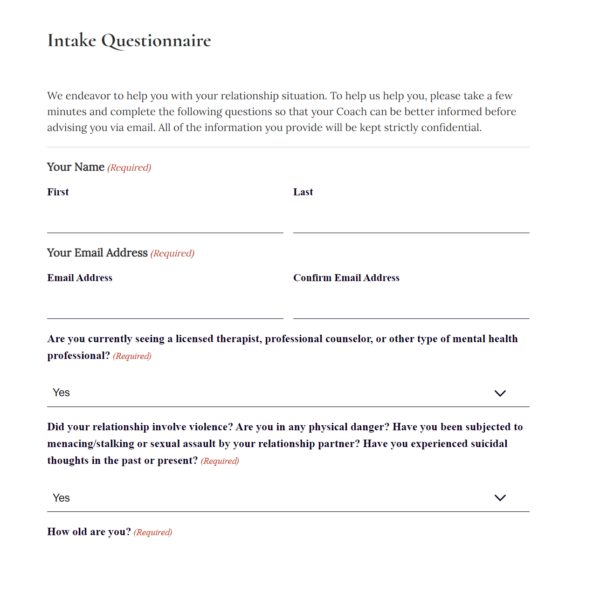
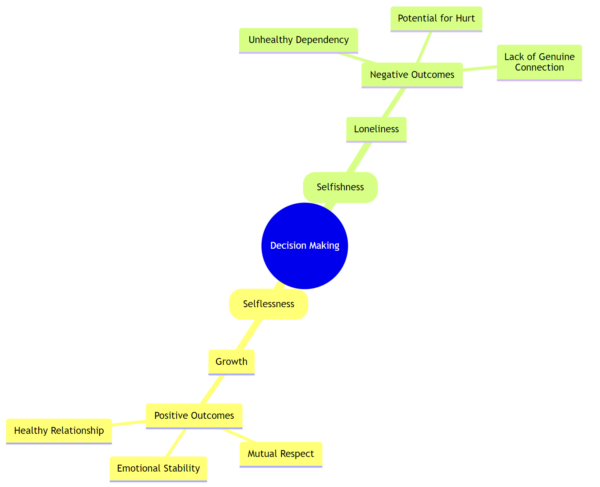
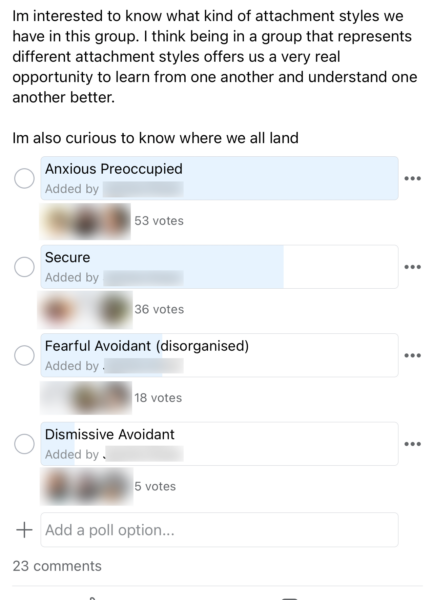
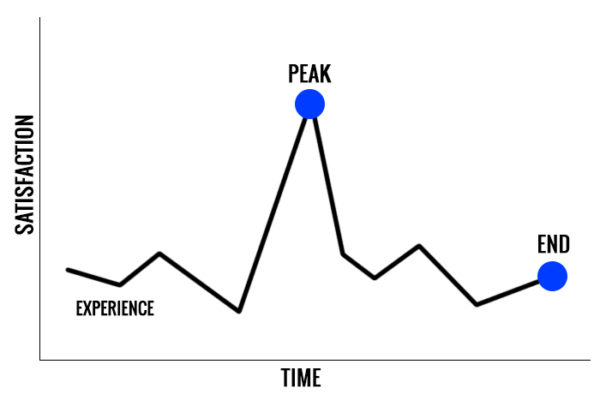
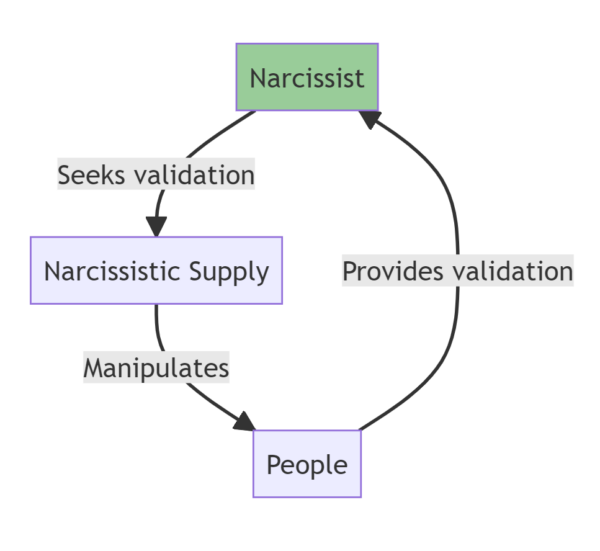


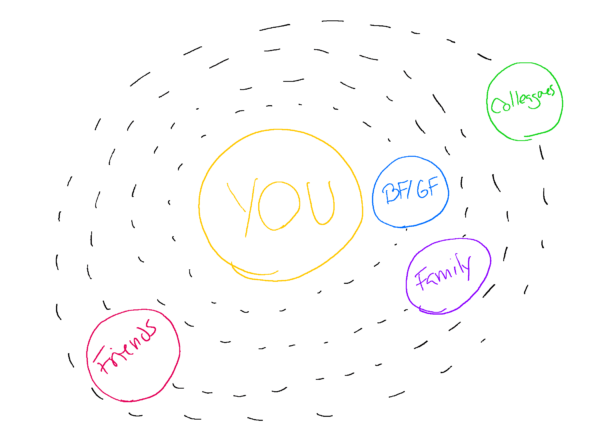
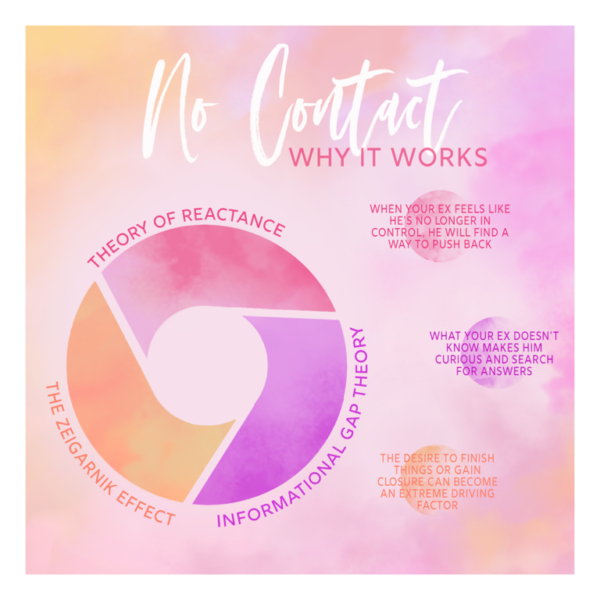
Susannah Handran-Smith
April 22, 2025 at 9:22 pm
Thank you. I found this post at a critical time right at the end of a 15 year relationship with an avoidant. I’m typically an anxious attachment type and go into a panic of how will I cope being alone. Your articles have given me hope that I can feel my emotions and self sooth and it will be ok. Really grateful for this valuable advice.
Tina
November 6, 2024 at 4:42 am
this article that I just read, was a breath of fresh air. Thank you